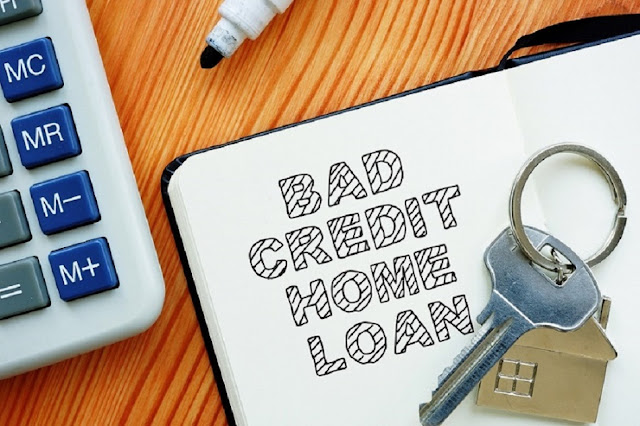How one can get a Home Loan with Bad Credit?
Getting a mortgage can be a challenging task if you have bad credit or no credit history. Banks tend to recognize you as more of a risk and are generally less prone to approve your home loan application. But that does not mean it is absurd to get a mortgage. Here at Real Estate Diary, we work closely with many lenders who may acquiesce you to borrow even if you have multiple blemishes on your credit history. So, before we get into bad credit mortgages, let us first take a look at what bad credit is. In a nutshell, a credit score is a rating that assists lenders to evaluate your creditworthiness that is, how suitable you are to receive financial credit, and how likely you are to pay it back.
Your credit score is
based on your financial history and may take many variables into accounts, such
as your current debt, payment history, overdrafts, credit cards, personal
loans, and much more. It is seen that the higher your credit score is, the more
alluring you are as a borrower and the more likely it is that a bank will give
you a home loan. Bad credit is typically a low credit score. For example,
missing payments on your credit card, defaulting on a loan, entering
bankruptcy, or owning a company that is in financial trouble can all curtail
your credit score.
How one can get
a home loan with a bad credit score?
A bad credit
mortgage is a home loan bespoke to people who may have credit issues in the
past or self-employed people who have no credit history. These types of home
loans give you the convenience to buy your first home or invest in the real
estate market regardless of financial hiccups in the past. They are an
excellent opportunity for prospective homebuyers who are unable to get a home
loan with a bad credit score. Bad credit mortgages are consistently offered by
non-bank lenders. A non-bank lender is a financial institute that is not a
bank, such as a credit union or building society which gives you more freedom
regarding lending criteria and mortgage products. These institutes are not
subject to the same laws and restrictions that govern various banks.
The low mortgage
rates that you see advertised are customarily reserved for borrowers who have
very good or exceptional credit scores. Having a low credit score often means
that you are stuck with a much higher rate. Because mortgages are often very
large loans that take decades to repay, even a 1% or 2% increase could lead to
paying tens of thousands more in interest over the lifetime of your loan. So no
matter what your credit scores, you will want to compare your loan preference
to get as low a rate as possible. The Consumer Financial Protection Bureau
(CFPB) has a mortgage interest tool by the benefit of which you can compare
rates based on your state, credit score range, and loan details.
Government-backed mortgages, such as FHA and VA loans, are customarily a good
starting point if you have a bad credit score.




Comments
Post a Comment